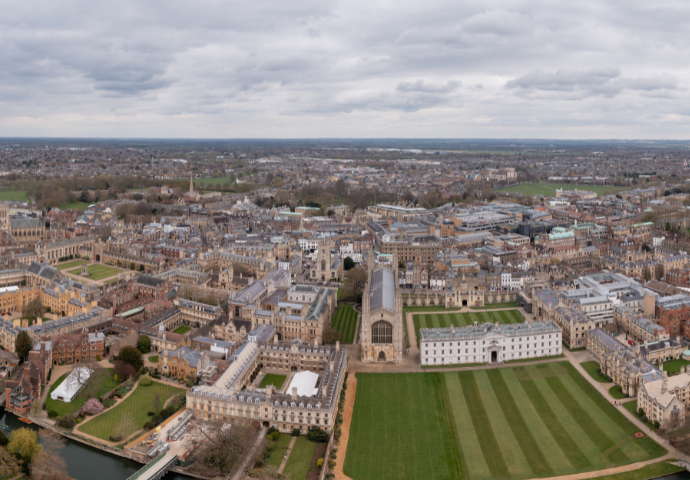- In January, Alchera Data Technologies (Cambridge, UK) won funding from the Net Zero Innovation programme run by Innovate UK to run a £250k pilot project with the Greater Cambridge Partnership and Oxfordshire County Council.
- Alchera’s software will monitor vehicle, pedestrian, and roadworks data in real-time, making recommendations to control room staff so they can keep people moving to reduce waiting times and improve the performance of sustainable transport options, such as buses, to cut congestion.
The project will use state-of-the-art machine learning algorithms to interpret data from sensor and camera networks, ensuring that the transport network is monitored, twenty-four hours a day.
Alchera Data Technologies, the Greater Cambridge Partnership in collaboration with Cambridgeshire County Council, and Oxfordshire County Council announce funding award from Innovate UK to help reach net zero targets.
Alchera as the lead partner for this project will be using the counties’ roads to trial an AI-driven solution to automate decision making in traffic control rooms. They will be combining data covering vehicles, active travel and roadworks to enable better decision making in regional control rooms.
Due to current limitations in the way different types of data can be used together, or ‘fused’, the regional traffic control rooms lack visibility of disruptions to sustainable travel and are forced to make manual decisions that impact the free-flow of people and vehicles.
Alchera’s AI will monitor conditions in real-time, including roadworks and sensor data, making recommendations to control room staff so they can keep people moving, and more easily see the trade-offs to prioritise sustainable & active modes.
The outputs of the programme will help demonstrate how local authorities can reduce congestion, improve bus reliability, and increase adoption of sustainable travel to help get closer to their Net Zero ambitions.
Both areas are already using Alchera’s data hub platform to access mobility data insights and fuel better decision making to improve local travel. The data hub is deployed by local authorities and strategic road operators to provide a single source of truth for all transport-related data, with outputs being used to provide data-driven evidence to support business cases, monitoring and evaluation, and better understanding of the movements of road users.
Daniel Clarke, Head of Innovation & Technology for Greater Cambridge Partnership, commented:
"We’re always keen to support local innovation, particularly when it benefits our residents.
“This project will give us an insight into how roadworks affect different travel options. By understanding these impacts, we can shape our strategies to encourage more people to choose sustainable travel. Imagine smoother journeys, less time stuck in traffic, and shorter commutes – that's what we're aiming for.
“The GCP's goals are to cut congestion, improve bus reliability, and make sustainable travel a more attractive and viable option for everyone in our community. This is not just about roads - it's about making everyone's daily travel experience better, greener, and faster."
Katie Parnell, Future Mobility & Placemaking Team Leader at Oxfordshire County Council, commented:
“Partnering on this project was an easy decision. As regions, we share close strategic links and face similar challenges which can be addressed by making better use of the data we already have available. Oxfordshire County Council are keen to support innovation that decreases our carbon footprint and makes sustainable travel a better option for our citizens.”
Anna Jordan, Co-Founder at Alchera, added:
“It’s fantastic to be working with two of our long-standing customers on this project. In both regions, we already integrate with thousands of sensors to ingest and analyse the mobility data underpinning this work. Dealing with real-time data in potentially congested, urbanised areas is challenging, so helping to automate the difficult decisions control rooms must make every day is paramount to a well-functioning transport network.”
Image: Catarsan, Canva



